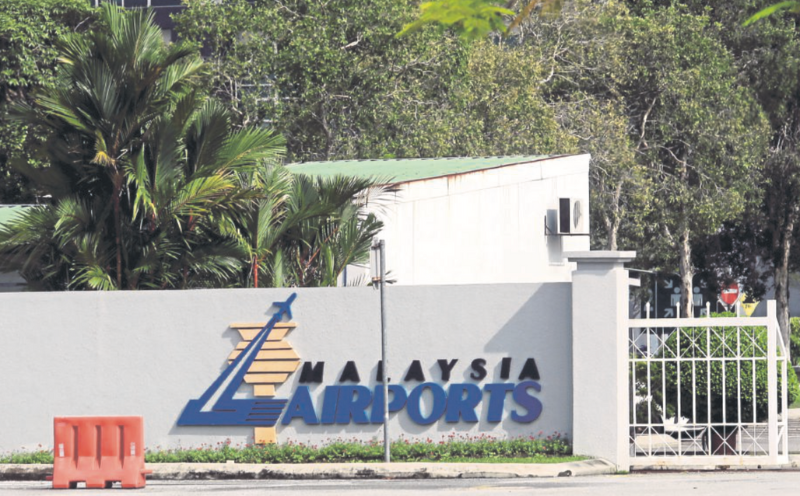KUALA LUMPUR: Malaysia's real estate investment trusts (Reits) are poised for another strong run this year, according to industry specialists.
This will be fuelled by the country's strong fundamentals and a stable macroeconomic outlook, driving earnings growth in retail, industrial and hospitality segments, they added.
Bursa Malaysia Reit Index rose 11.1 per cent in 2024 compared to 1.2 per cent in 2023, according to Maybank Investment Bank Bhd (Maybank IB) analyst Nur Farah Syifaa.
This was aligned with the broader FTSE Bursa Malaysia KLCI 's gain of 12.9 per cent during the year.
The rise was driven by the commencement of the US Federal Funds Rate easing cycle and improved expectations for earnings delivery, Nur Farah added.
A Reit is a fund or a trust that owns and manages income-producing commercial real estate, including shopping complexes, hospitals, plantations, industrial properties, hotels and office blocks, according to Bursa Malaysia.
There are 19 Bursa-listed Reits in Malaysia such as Axis Reit, Sunway Reit, Pavillion Reit and YTL Reit that provide a steady dividend to unitholders.
Malaysian Reit Managers Association honourary secretary Datuk Stewart Labrooy told Business Times that the key macroeconomic trends impacting Reits this year include new economic programs launched by both federal and state governments.
Labrooy, who is also executive chairman of AREA Group, said Johor-Singapore Special Economic Zone (JS-SEZ) is also expected to drive investment in Johor in the coming years, benefiting Reits focused on industrial and commercial properties.
"The reduction of subsidies has strengthened the ringgit as the nation move towards a balanced budget and the introduction of tax reforms in the 2025 Budget will strengthen government revenue," he added.
Other significant economic measures include the increase in service tax to eight per cent from six per cent, new investment incentives and a focus on renewable energy.
Labrooy said Malaysia's commitment to digital economy incentives and resumption of Free Trade Agreement negotiations with the European Union (EU) provide a favourable backdrop for Reits in 2025.
He also seeing positive movement in labour policies such as the increase in the minimum wage, which is supporting consumer spending and boosting the retail segment.
With interest rates remaining stable, Malaysian Reits are well-positioned to manage potential risks associated with rising borrowing costs and economic volatility.
"Furthermore, the market believes is that interest rates will be maintained for 2025, giving a lot of certainty for Reits as they strategise their debt profiles.
"I don't believe that the interest rate will increase this year giving certainty to the Reits debt profiles," he said.
Labrooy said the booming tourism sector led to strong performance in hotels and retail assets, while the industrial segment is doing very well, particularly with the rise of data centres and growing demand for new industrial estates to accommodate an influx of new industries into Malaysia.
"Retail, industrial and hospitality Reits are expected to outperform this year. However, the effect of a Trump presidency has yet to reach our shores and that could be the wild card that could take us all by surprise," he added.
Maybank IB's Nur Farah expects Malaysian Reit to achieve earnings growth of 9.6 per cent this year, driven by sustained occupancy levels and rental rates, alongside several new asset injections.
Concurrently, she said the sector is expected to deliver an average net distribution per unit (DPU) yield of 5.9 per cent compared to 5.3 per cent last year.
Nur Farah said Reits remain a preferred defensive sector, with dividends underpinned by resilient earnings and sustainable payout ratios.
"Malaysian Reits with matured retail assets in prime locations remain attractive due to their ability to maintain high occupancy rates and achieve positive rental reversions.
"Furthermore, hospitality assets are poised to benefit from the anticipated increase in inbound tourist arrivals.
"We continue to favour Reits focused on the industrial segment for their resilient earnings, supported by long-term leases and robust rental reversion prospects," she added.
RHB Investment Bank Bhd said the current dividend yield spread between the KLREI and Malaysia Government Securities (MGS10) is at 160 base points – in line with the historical mean.
Although the US' 10-year bond yield has been more volatile, ranging between a low of 3.6 per cent to a high of 4.7 per cent in 2024, the firm said the MGS10 yield has remained broadly stable around 3.8 per cent.
"While we do not expect any cuts to the overnight policy rate in 2025, interest rate cuts globally should place downward pressure on the MGS10 yield, supporting Reits' valuations," it said.
















